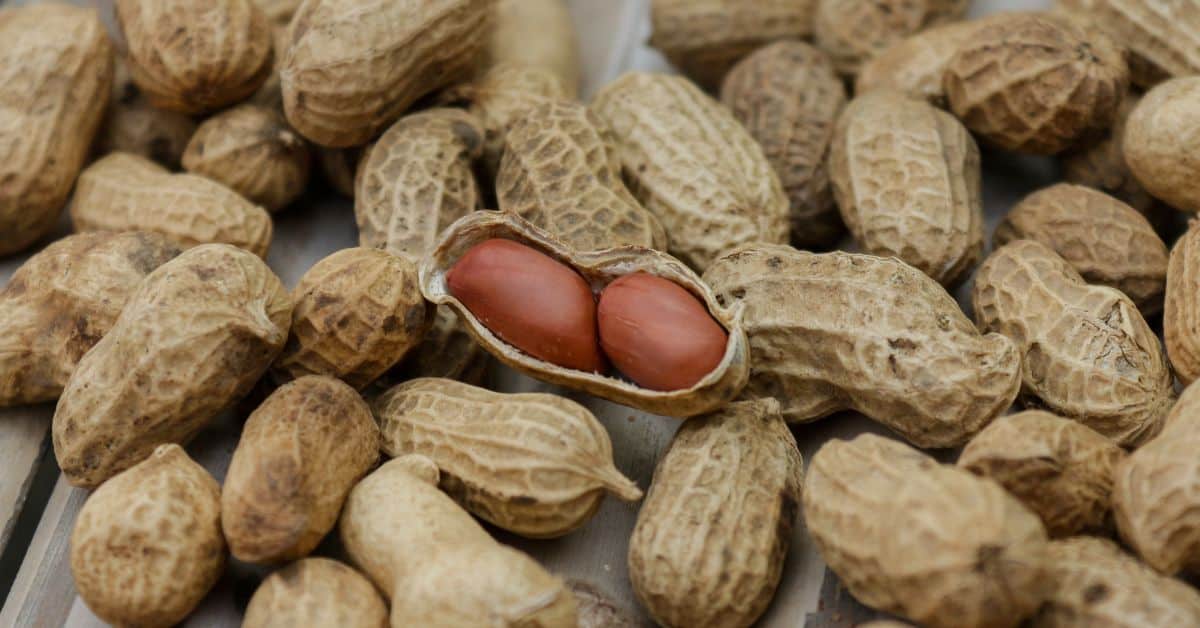Peanuts
Food: Peanuts are a type of legume that grows underground. They are commonly consumed as a snack, either roasted or boiled. Peanut butter, a spread made from ground peanuts, is also popular.
Comic Strip: “Peanuts” is a syndicated daily and Sunday American comic strip written and illustrated by Charles M. Schulz. It ran from October 2, 1950, to February 13, 2000, and is one of the most popular and influential comic strips in the history of the medium.
Allergy: Some people are allergic to peanuts. Peanut allergy is a common and potentially serious condition that can cause severe reactions in some individuals
Nutrition facts
Certainly! Here are the approximate nutrition facts for peanuts, based on a standard serving size of 1 ounce (28 grams), which is about a small handful:
- Calories: 160
- Protein: 7 grams
- Fat: 14 grams (of which 7 grams are monounsaturated fat, 4 grams are polyunsaturated fat, and 3 grams are saturated fat)
- Carbohydrates: 6 grams
- Fiber: 2 grams
- Sugar: 1 gram
- Vitamins and Minerals:
- Vitamin E: 2 milligrams (9% of the Daily Value)
- Niacin (B3): 4 milligrams (20% of the Daily Value)
- Folate (B9): 68 micrograms (17% of the Daily Value)
- Magnesium: 49 milligrams (12% of the Daily Value)
- Phosphorus: 86 milligrams (9% of the Daily Value)
- Copper: 0.2 milligrams (15% of the Daily Value)
- Manganese: 0.6 milligrams (29% of the Daily Value)
It’s important to note that these values can vary based on the specific type of peanuts (raw, roasted, salted, etc.) and whether they are plain or part of a processed product (like peanut butter). Additionally, these are general values and individual products may have slightly different nutritional profiles. Always check the product label for the most accurate information.
15 Health benefits of peanuts
Peanuts offer various health benefits when consumed as part of a balanced diet. Here are some of the potential health benefits of peanuts:
- Rich in Nutrients: Peanuts are a good source of various essential nutrients, including protein, healthy fats, fiber, vitamins (such as vitamin E, niacin, and folate), and minerals (such as magnesium, phosphorus, and manganese).
- Heart Health: The monounsaturated and polyunsaturated fats in peanuts may contribute to heart health by helping to lower bad cholesterol levels (LDL cholesterol) and increase good cholesterol levels (HDL cholesterol). The presence of resveratrol, a natural compound found in peanuts, may also have cardiovascular benefits.
- Weight Management: Despite being calorie-dense, peanuts can be a satisfying and satiating snack. The protein and fiber content can help keep you full, potentially reducing overall calorie intake and aiding in weight management.
- Antioxidant Properties: Peanuts contain various antioxidants, including resveratrol, which may help protect the body’s cells from damage caused by free radicals. Antioxidants play a role in reducing inflammation and supporting overall health.
- Blood Sugar Control: The combination of protein, healthy fats, and fiber in peanuts may contribute to better blood sugar control. This can be particularly beneficial for individuals with diabetes.
- Nutrient Absorption: The healthy fats in peanuts may enhance the absorption of fat-soluble vitamins, such as vitamin E, from other foods in the diet.
- Reduced Risk of Certain Diseases: Some studies suggest that regular consumption of peanuts may be associated with a reduced risk of certain diseases, including cardiovascular disease, diabetes, and certain types of cancer.
- Brain Health: Peanuts contain nutrients like niacin and resveratrol, which may have neuroprotective properties. Niacin plays a role in cognitive function, and resveratrol has been studied for its potential benefits in supporting brain health.
- Energy Boost: Peanuts are a good source of energy due to their combination of healthy fats, protein, and carbohydrates. Including peanuts in your diet can provide a sustained release of energy.
- Muscle Health: The protein content in peanuts is beneficial for muscle health. It provides essential amino acids that contribute to muscle repair and growth.
- Gut Health: The fiber in peanuts supports digestive health by promoting regular bowel movements and contributing to a healthy gut microbiota. A healthy gut microbiota is associated with various aspects of overall well-being.
- Mineral Support: Peanuts contain minerals such as magnesium and phosphorus, which are essential for bone health. These minerals play a role in maintaining the strength and density of bones.
- Anti-Inflammatory Properties: Some components in peanuts, including resveratrol and other antioxidants, may have anti-inflammatory effects. Chronic inflammation is associated with various health issues, and including anti-inflammatory foods in the diet may contribute to overall well-being.
- Satiety and Weight Control: The combination of protein, healthy fats, and fiber in peanuts can contribute to a feeling of fullness and satisfaction. This may help with weight control by reducing the likelihood of overeating.
- Versatility in the Diet: Peanuts are versatile and can be incorporated into various dishes, snacks, and cuisines. This makes it easier for individuals to enjoy the nutritional benefits of peanuts as part of a diverse and balanced diet.
It’s important to emphasize that individual responses to food can vary, and dietary needs differ among individuals. While peanuts offer numerous health benefits, it’s crucial to consider overall dietary patterns and individual health conditions. If you have specific health concerns or conditions, it’s advisable to consult with a healthcare professional or a registered dietitian for personalized advice.
# 20 Surprising Health Benefits of Dates: A Nutritional Powerhouse
It’s important to note that while peanuts can be part of a healthy diet, moderation is key due to their calorie density. Also, individuals with peanut allergies should avoid peanuts and peanut products. As with any food, it’s advisable to consult with a healthcare professional or a registered dietitian to determine how peanuts can fit into your individual dietary needs and health goals.




[…] # 15 Surprising Health Benefits of Peanuts: Nutrition Facts […]